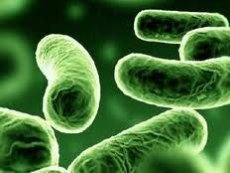New publications
Scientists have found a new way to defeat drug-resistant superbacteria
Last reviewed: 01.07.2025

All iLive content is medically reviewed or fact checked to ensure as much factual accuracy as possible.
We have strict sourcing guidelines and only link to reputable media sites, academic research institutions and, whenever possible, medically peer reviewed studies. Note that the numbers in parentheses ([1], [2], etc.) are clickable links to these studies.
If you feel that any of our content is inaccurate, out-of-date, or otherwise questionable, please select it and press Ctrl + Enter.

How do you defeat an opponent that has acquired new and effective defense mechanisms? Either develop a more powerful weapon or find a way to undermine its new smart defenses. In the war against superbugs, this is the equivalent of developing new drugs or methods to make them more susceptible to existing drugs.
Scientists have found a way to defeat drug-resistant bacteria that have acquired an ingenious defense mechanism called "pumps." These pumps allow them to get rid of antibiotics in their bodies. A team of chemists from Brown University has found a way to block the bacteria's "pumps," making them vulnerable to antibiotics again.
Dr Jason K. Seljo of Brown University in Providence, US, and colleagues write about how they synthesised a new compound, called BU-005, and used it to block the "pumps" that bacteria use to defend themselves against antibiotics, including the antibacterial drug chloramphenicol.
"Pumps" are proteins that reside in the cell walls or membranes of bacteria. They identify and eliminate drugs that disrupt their membranes. In some cases, "pumps" have become so sophisticated that they can recognize and eliminate drugs with completely different structures and mechanisms.
"Drug resistance in the clinical setting is a real problem, especially when a bacterial organism acquires a gene that codes for a 'pump' that acts on several antibiotics. In a worst-case scenario, a bacterium can become resistant to five or six different drugs by acquiring a single gene," says Seljo.
Jason Seljo's research is not the first of its kind: Many scientists have tried to disarm drug-resistant bacteria by inactivating their "pumps." The problem is that different types of bacteria have different kinds of "pumps."
Scientists have discovered that a new class of compounds called BU-005, called C-restricted dipeptides, can block the drug efflux pumps of Gram-positive bacteria, including MRSA and tuberculosis. Before Jason Seljo's discovery, scientists thought that C-restricted dipeptides were only active against the drug efflux pumps of Gram-negative bacteria.
Seljo's team, through chemical modifications of C-restricted dipeptides, found that BU-005 blocked the MFS "pumps" in the bacterium Streptomyces coelicolor (a relative of the human pathogenic tuberculosis Mycobacterium), which expel chloramphenicol, one of the most powerful antibacterial drugs.
"It turns out that C-restricted dipeptides block channels in both Gram-positive and Gram-negative bacteria. This should increase scientists' interest in these compounds," Sell said.

 [
[